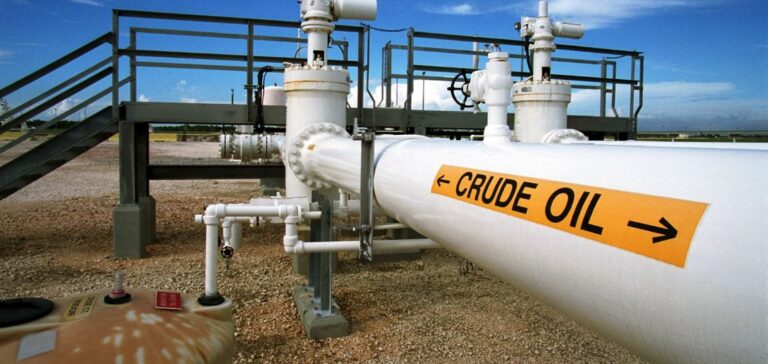Commercial crude oil inventories in the United States recorded an unexpected increase of 6.2 million barrels during the week ending March 28, according to data released by the Energy Information Administration (EIA). This rise brought total inventories to 439.8 million barrels, their highest level since July 2024, while analysts had forecast a moderate decline of around 500,000 barrels, based on a consensus compiled by Bloomberg.
Refining slowdown and impact on inventories
This accumulation of crude coincides with lower refining utilisation, which dropped to 86% from 87% the previous week. Reduced refining activity generally leads to a build-up of crude inventories due to the slowdown in processing. Domestic production remained almost unchanged at 13.58 million barrels per day, compared to 13.57 million the week before.
Falling exports, rising imports
The main factor contributing to the inventory increase was a 16% drop in US crude oil exports, which fell to 3.88 million barrels per day from 4.60 million in the prior period. Meanwhile, imports rose by 4.37%, driven in part by a significant increase in volumes from Canada.
Canadian imports reached 4.42 million barrels per day, the second-highest level ever recorded, according to Bloomberg. Phil Flynn, analyst at Price Futures Group, attributed the surge to efforts aimed at accelerating cross-border shipments ahead of potential new tariffs proposed by President Donald Trump.
Moderate impact on crude prices
At the delivery hub in Cushing, Oklahoma, inventories rose by approximately 2.4 million barrels. Historically, such an increase tends to weigh on oil prices. However, the market response was mixed: West Texas Intermediate (WTI) initially dipped before rebounding to $69.91 per barrel (+1.33%), while Brent crude from the North Sea held steady at $74.54 (+0.07%).
According to Phil Flynn, the temporary weakness in refinery operations and ongoing geopolitical uncertainties, particularly regarding Iran, continue to support a risk premium in oil prices.






















